[Microgame Simulations, BBC Micro]
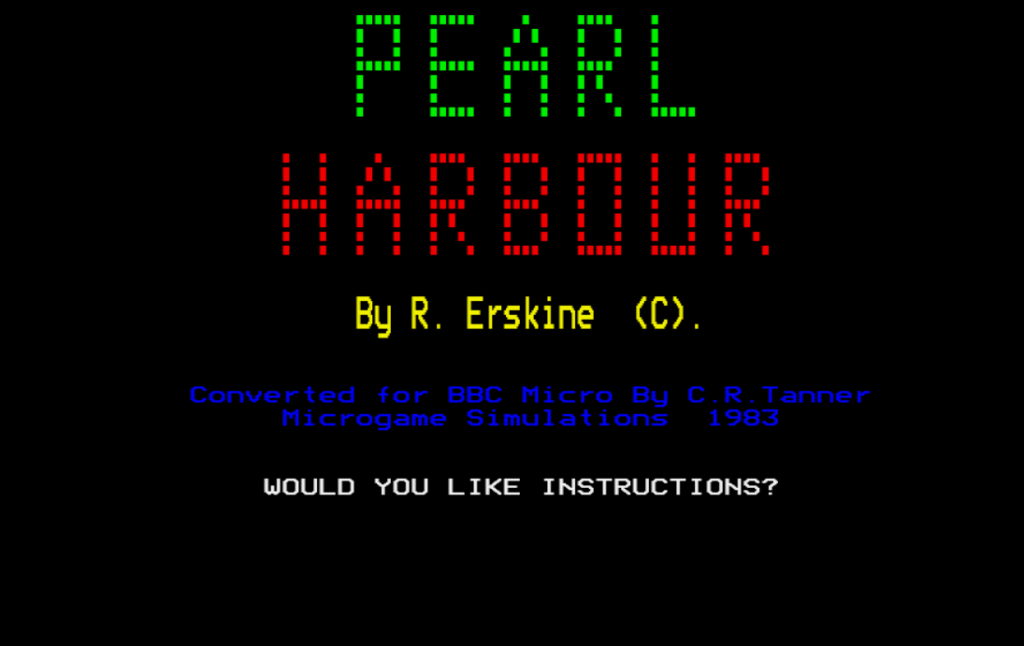
Wargaming allows us to test interesting What-if scenarios. For instance, what if the Americans had been expecting the attack of Pearl Harbour and the Japanese were woefully incompetent?
Pearl Harbour is an air operations game attributed to Robert Erskine, who had earlier in 1982 published another air operations game called Battle of Britain.
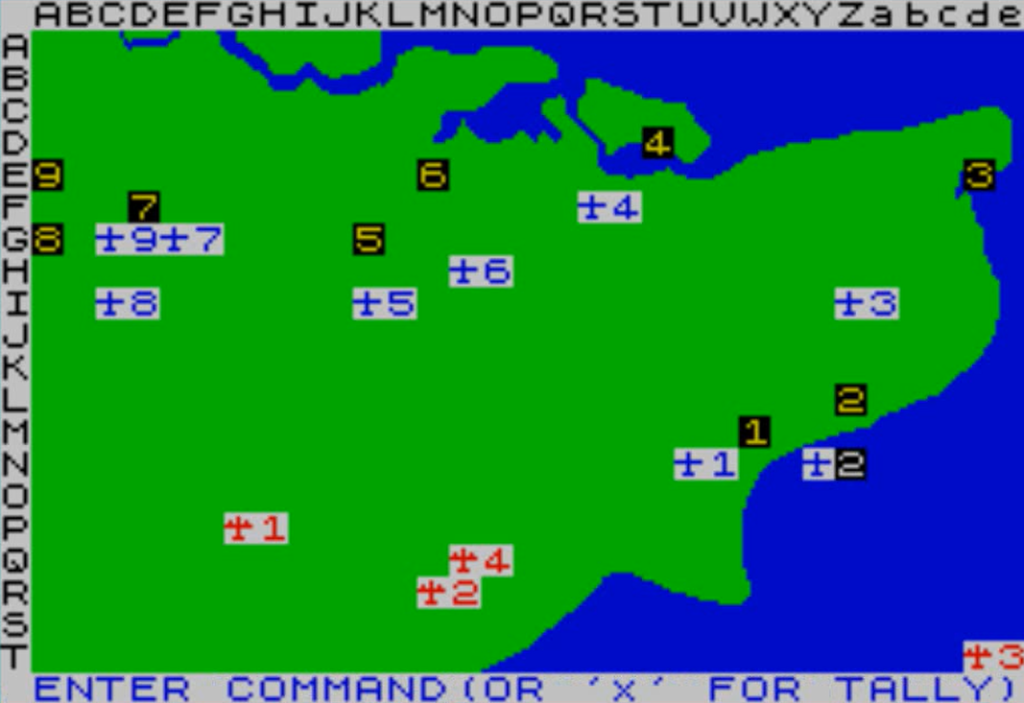
I am not going to sugarcoat it: Pearl Harbour is the same game, but worse. I played it exactly once, so let’s see what happened.
It’s the morning of the 7th of December 1941, and something is amiss in the Pacific paradise. A group of Japanese planes coming from the North have just been detected by the radar of the Pearl Harbour naval base. The Japanese coming from the North is historically correct; what’s less historical is that I am immediately aware that those planes are hostile (the radar operators thought they were returning B-17s) and the US planes are ready to scramble, instead of being nicely parked on the airstrips in the most vulnerable way.
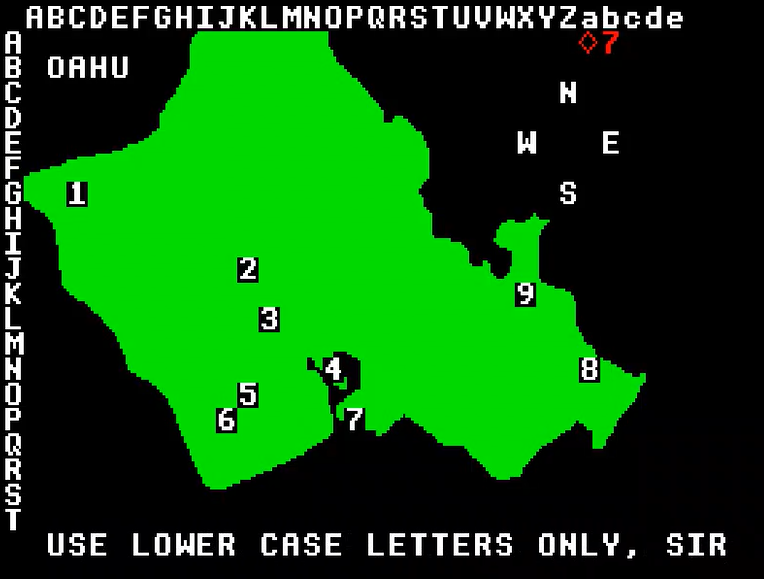
Soon enough, 6 of the 9 enemy air wings are detected. My objective is to prevent the Japanese from bombing my airports – if 100 Japanese bombers manage to drop their payload I lose. I also have 9 air wings – hey what a coincidence that’s exactly what the British had during the Battle of Britain. I don’t want to scramble them all right away because if they run out of fuel it takes a lot of time to bring them back to the airport and get them ready again for action.
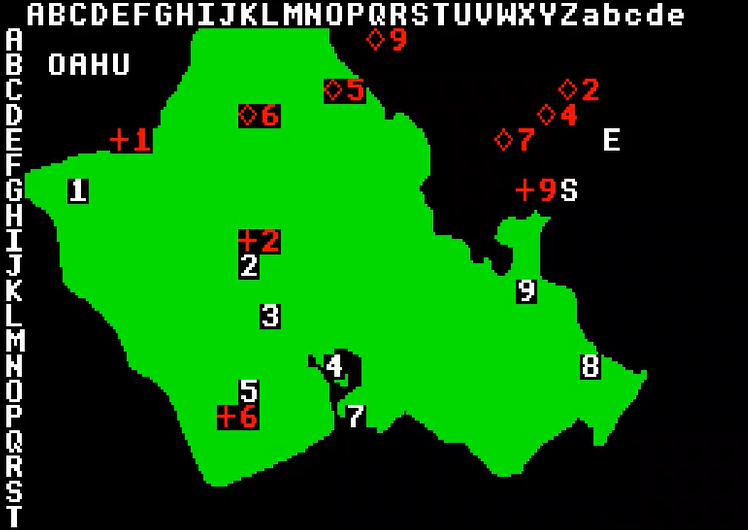
My 9th air wing encounters a Japanese group in the air…
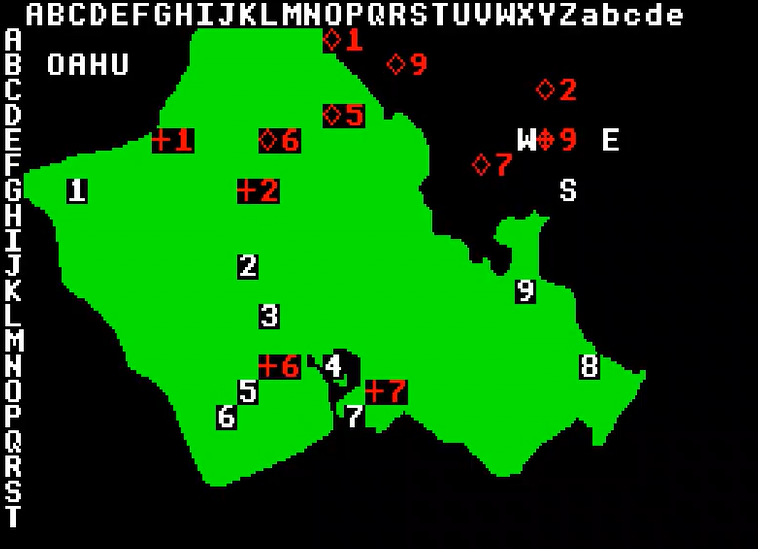
… and it disappears with its 10 planes. Not a great show for the US Air Force. Or US Navy, I don’t know.
Occasionally, I receive reports on the size of enemy raiders in terms of “bombers” and “escorts”. It is important information: each of my airfields can scramble one group of 10 fighters. In combat fighters and escorts trade kills at 1:1 ratio (give or take 10%) until annihilation and then each surviving interceptor can then destroy dozens of Japanese bombers before being shot down – time and ammo are not an issue. Given I have only 90 interceptors, the objective of the game is to attack the least escorted groups, while making sure not to let more than 100 bombers survive.
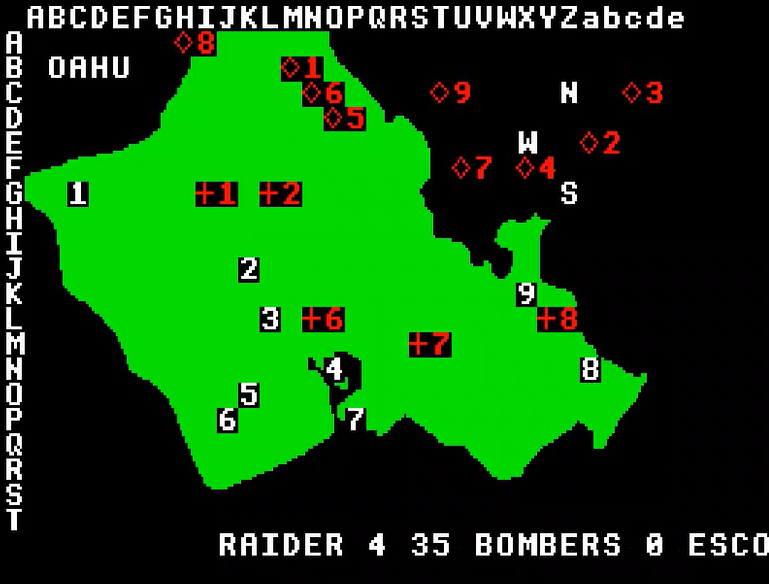
The trajectories of the Japanese raider groups are erratic. I don’t have perfect information, but they seem to haphazardly circle over the ocean; sometimes they even double back!
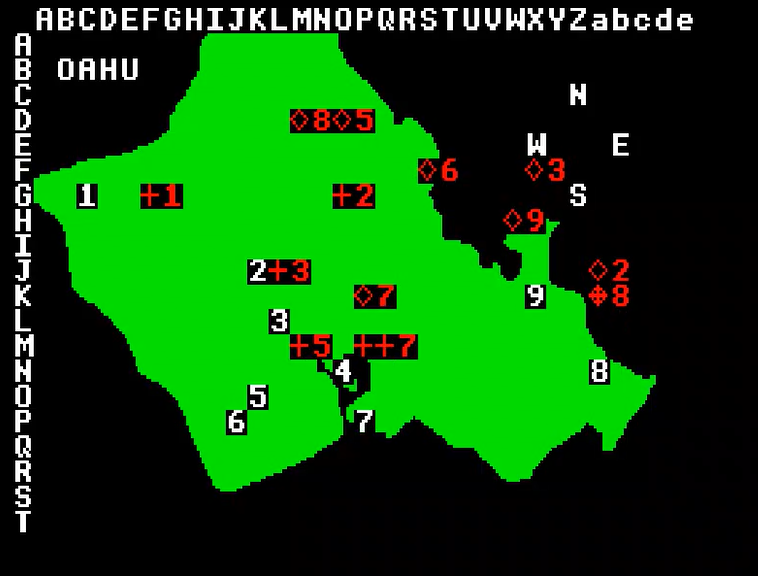
If the Japanese had been more decisive in their attack, the game would have been much harder, because after an interception my planes must return to an airport to rearm & refuel. Happily enough, the Japanese were not issued any direction before taking off so I have all the time I need.
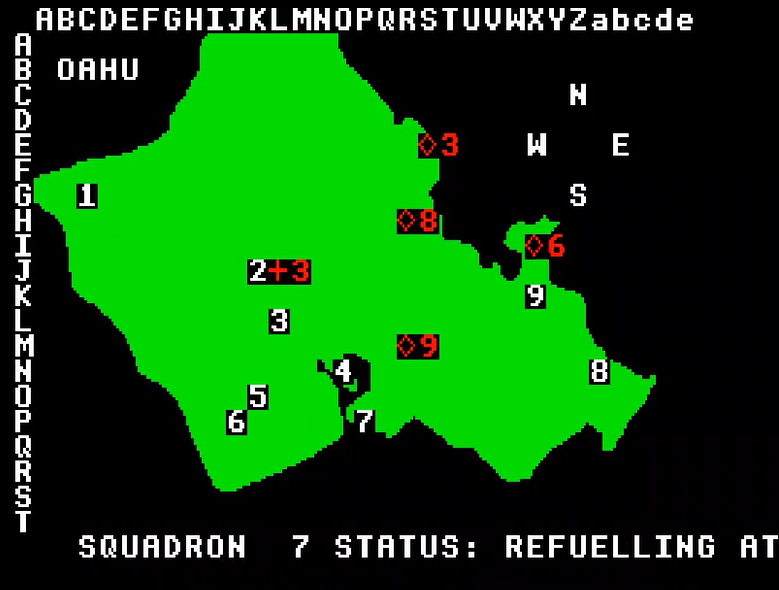
Eventually, the 9th Japanese group finds its bearings and flies South toward my airfields. I don’t have any air wing available to intercept it as it approaches, but at the last possible moment the 7th air group accepts to scramble:
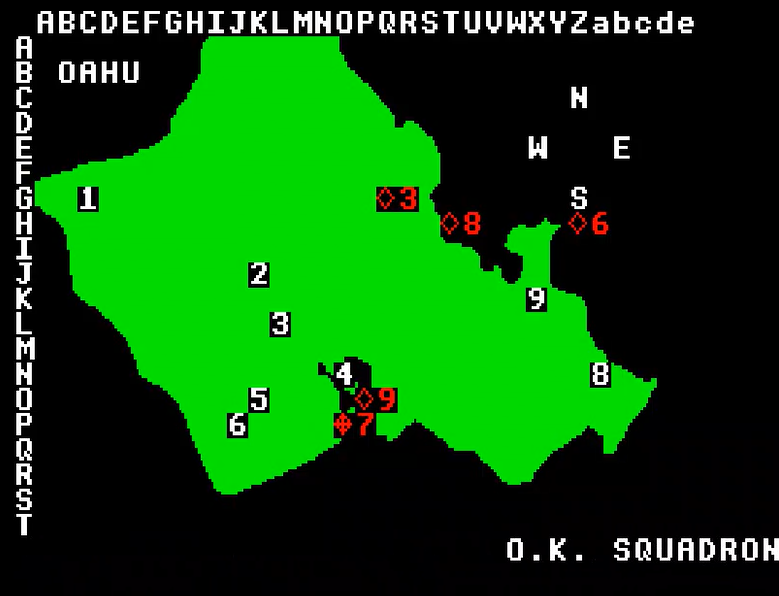
That’s the end of the game. The 3 remaining Japanese groups have less than 100 bombers in total, so it is a victory.
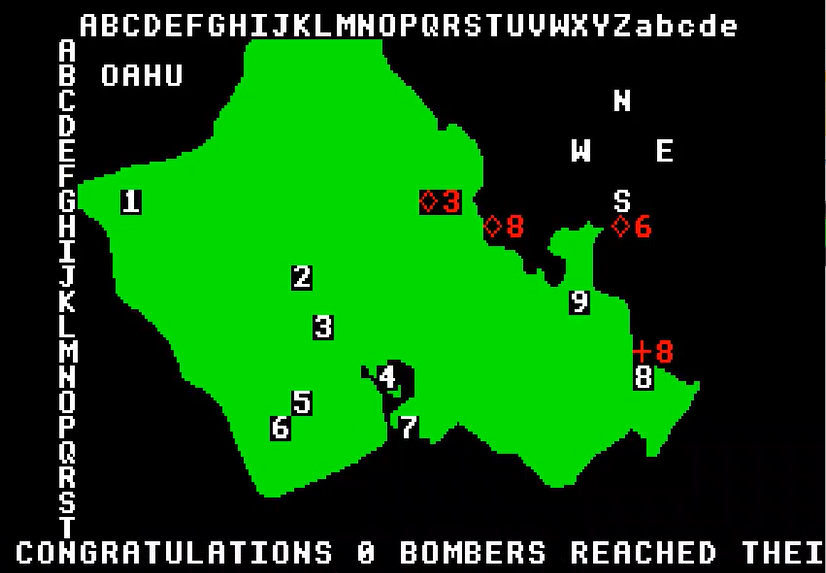
From wargaming it, I can now determine that if the Americans had been warned about the Japanese attack and the Japanese had been inept, flying circles above the sea while waiting for the Americans to rearm and refuel between two interceptions, then the battle of Pearl Harbour would have been a decisive American victory. Glad to have this clarified.
Rating & Review
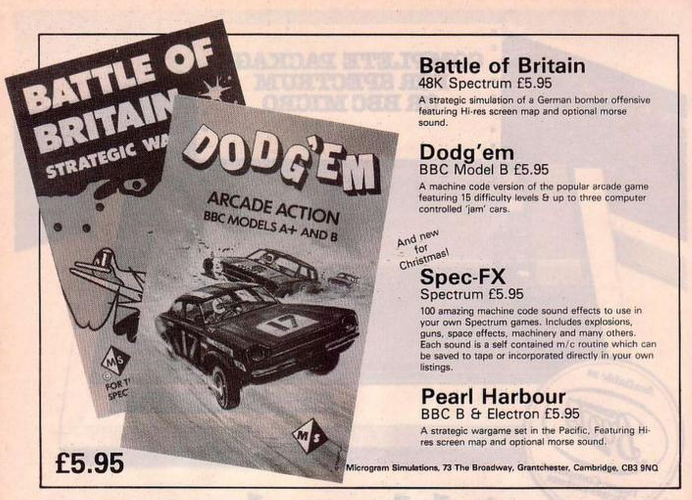
Pearl Harbour, by Robert Erskine and C.R. Tanner, published by Microgame Simulations, UK
Genre: Air Operations
First release: January 1984 on BBC Micro
Average duration of a campaign: 20-30 minutes
Total time played: 25 minutes
Complexity: Easy (1/5)
Final Rating: Totally obsolete
Ranking at the time of review: 100/112
I don’t have a lot to say on Robert Erskine and Microgame Simulations, the little I found I already wrote in the Battle of Britain article. Pearl Harbour, however, is a bit of a mystery. The splash says that the game is by Erskine, “converted to BBC Micro” by C.R. Tanner but I never found any mention of a non-BBC Micro version of Pearl Harbour.
The game is design-wise even weaker than the already mediocre Battle of Britain: the position of the enemy planes is almost always known, enemy behaviour is absurd and combats “block” the game rather than taking precious time for your air groups. On the other hand, the game is significantly faster, and I did not encounter any of the bugs I mentioned in my review of Battle of Britain. My educated guess is that the “original” Pearl Harbour is actually Erskine’s Battle of Britain and that someone assumed that if the game was converted, it would be financially more interesting to pretend it is a different game. I suspect Erskine was not directly involved in Pearl Harbour.
Honestly, it does not change my opinion of the game. The game receives a Terrible rating in each of my categories (same reasons as Battle of Britain, minus the sluggishness, plus everything I mentioned above). I rarely felt I had to take a decision (eg “how many of my air groups do I keep in reserve”). The game is totally obsolete, though inspiring: it shows that no matter how mediocre your game is, there is always a possibility that someone will come after you and make it even worse! I could not find any review of the game.
Next, I found it amusing to cover a game called “After Pearl”, yet another Pacific War game where you don’t play the Japanese, but before that, for a change in scenery, I will play MC Lothlorien’s Panzer Attack. It should be a wildly different experience, shouldn’t it?